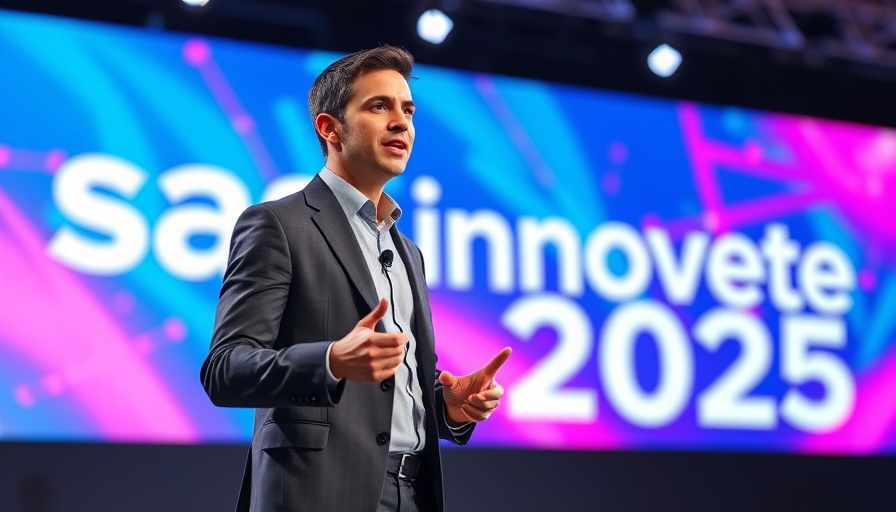
The Future of AI: Insights from SAS Innovate 2025
In a world dominated by rapid technological advancements, the evolution of artificial intelligence (AI) stands at the forefront. As demonstrated at SAS Innovate 2025 held from May 6-9 in Orlando, Florida, the convergence of generative AI with quantum computing signals not just a speculative future, but one that is tangibly unfolding today. Attendees were provided a unique glimpse into how AI technologies are transforming businesses, with a specific focus on practical applications and success stories.
AI Agents: Reshaping Decision Making
One significant highlight of the event was the emergence of AI agents capable of making autonomous decisions. As software continues to evolve, SAS introduced AI frameworks designed to provide organizations a pathway to responsible innovation. By leveraging SAS's Intelligent Decisioning platform within the SAS Viya environment, companies can designate AI agents that operate independently and execute critical tasks while adhering to marketplace regulations and business rules. This hybrid approach combines deterministic analytics with advanced large language models (LLMs) to cultivate trustworthy outcomes.
The Human-in-the-Loop Principle
One of the most intriguing aspects of this new AI landscape is the “Human-in-the-Loop” (HITL) strategy. This approach allows companies to adjust the level of AI agent autonomy based on their unique operational needs. While AI tackles repetitive data-driven tasks independently, human oversight remains crucial for ethical judgment and strategic planning. This synergistic relationship is expected to improve productivity significantly while alleviating burdens on workforce tasks.
SAS Viya: Enhancements for Business Intelligence
SAS Viya was another key focus during the convention, showcasing impressive improvements aimed at enhancing productivity and decision-making capabilities. Through the integration of co-pilot productivity assistants, SAS aims to streamline processes further, enabling users to perform tasks more efficiently. Notably, the platform will offer pre-packaged intelligent agents tailored for various industries, ensuring that organizations quickly adopt AI innovations to optimize workflows.
Opportunities and Challenges in AI Integration
Organizations face both opportunities and challenges in this rapidly changing AI landscape. The potential for improved efficiency and innovative business models is vast. However, the necessity for responsible AI practices cannot be overlooked, particularly in the context of data governance and ethical considerations. At SAS Innovate 2025, the conversation around responsible AI practices underscored the need for organizations to navigate these complexities with a proactive mindset.
Embracing the AI Learning Path
In this era of digital transformation, upskilling employees in AI science is vital. Organizations should invest in AI learning paths that demystify these technologies, equipping their workforce with the skills necessary to harness AI’s full potential. Educational initiatives and platforms need to focus on making AI principles accessible, ensuring that employees can contribute effectively to their organization’s goals in an AI-driven world.
Conclusion: Taking Action Towards an AI Future
As the advancements in AI technology continue to unfold, it is essential for businesses to stay informed and adaptable. The innovations presented at SAS Innovate 2025 serve as a call to action for organizations to integrate AI strategically, balancing autonomous operations with human oversight. By embracing AI learning and fostering a culture of responsible innovation, companies can elevate their operations and prepare for a future dominated by intelligent technologies.
 Add Row
Add Row  Add
Add 




Write A Comment